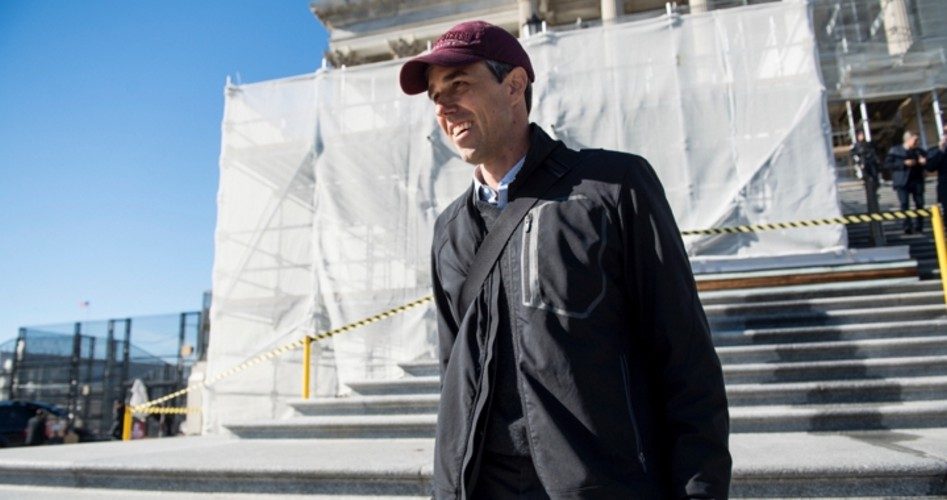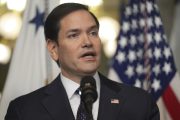
In a recent interview, now-former Representative Robert Francis “Beto” O’Rourke (D-Texas) said, “I trust the wisdom of people. And I’m confident — especially after having traveled Texas for two years — people are good, fundamentally, and if given the choice to do the right thing, they will.”
Considering that the people of Texas made the choice to keep Senator Ted Cruz in office, and reject O’Rourke, one is tempted to agree with him.
A closer look at O’Rourke’s formula, however — “if given the choice to do the right thing, they will” — reveals the superior attitude common to many on the left side of the political spectrum. Their view is — they believe — the “right thing,” and given enough indoctrination from their allies in the media, academia, and the popular culture, people will eventually “do the right thing.”
O’Rourke’s concept of the “right thing” does not appear to be to follow the Constitution of the United States. As he concluded his time in the U.S. House of Representatives, O’Rourke had managed only a dismal 27-percent score on the “Freedom Index” of The New American magazine (which takes the votes of all 535 members of Congress and scores them according to their fidelity to the principles found in the Constitution).
Now that O’Rourke is testing the waters of a possible presidential bid for 2020, he is attempting to portray himself as a reasonable centrist, not the left-wing progressive he clearly is. Rather than offering his own solutions to America’s problems, his tactic seems to be to give the appearance that Americans themselves will propose them.
Immigration was a big issue during his losing Senate campaign, and it promises to be a major issue, if not the central one, in the 2020 presidential race, whether O’Rourke is the Democratic Party nominee for president, or vice-president. While he is of Irish ancestry, the El Paso Democrat has found it useful during his political career to be called “Beto,” rather than Robert. Who knows — echoing the transgender agenda, which argues a man can be a woman if he thinks he is — O’Rourke may run as an Hispanic in 2020.
While much attention has been given to preventing illegal entry into the country (thus Trump’s “wall” solution), it is estimated that about as many illegal aliens are in the country because they have overstayed their visas as have illegally crossed the border. Visas — permission for a foreigner to enter the country legally to either work or attend college, for example — are a source of much of the problem of illegal immigration, and to solve the problem, this needs to be addressed.
O’Rourke does not have a solution to the problem caused by individuals simply remaining in the country once their visa term ends. At least he had none to offer in his recent interview, responding, “I don’t know.” Then, he said that perhaps the United States could work with Mexico to keep better track of those entering the country via a visa, but finally concluded, “that’s something that we should be debating.”
One would think that after a several months-long senatorial campaign in Texas, O’Rourke would at least have more concrete solutions than to have a debate, and let the people decide, but he offered an explanation as to why he has no firm position on what to do about immigration.
“The genius is we can nonviolently resolve our differences, though I won’t get to my version of perfect or I, working with you, will get to something better than what we have today.”
Certainly one can understand that immigration is a complicated issue, and there are many opinions as to what the best solutions are, but O’Rourke’s ambivalence extends to other issues, as well. When asked about what he thought about the announcement by President Trump that he intends to withdraw American forces from Syria, O’Rourke repeated his immigration position: He would like to see “a debate, a discussion, a national conversation about why we’re there.… There may be a very good reason to do it [send troops to foreign countries]. I don’t necessarily understand — and I’ve been a member of Congress for six years.”
What about the “Green New Deal?” (This is the plan to drastically increase taxes and government controls over the economy to combat “climate change emissions,” a plan offered by many radicals within O’Rourke’s Democratic Party.) O’Rourke said it was “a perfect point from which to start a conversation.”
Perhaps if O’Rourke actually jumps into the presidential race, he will become a part of the “debate,” and the “conversation.” Until then, we do have his voting record while a member of Congress — and that should certainly start a conversation among those who highly regard limited government and the Constitution— O’Rourke does not appear to be someone conservatives will want in the White House.
Photo: AP Images


